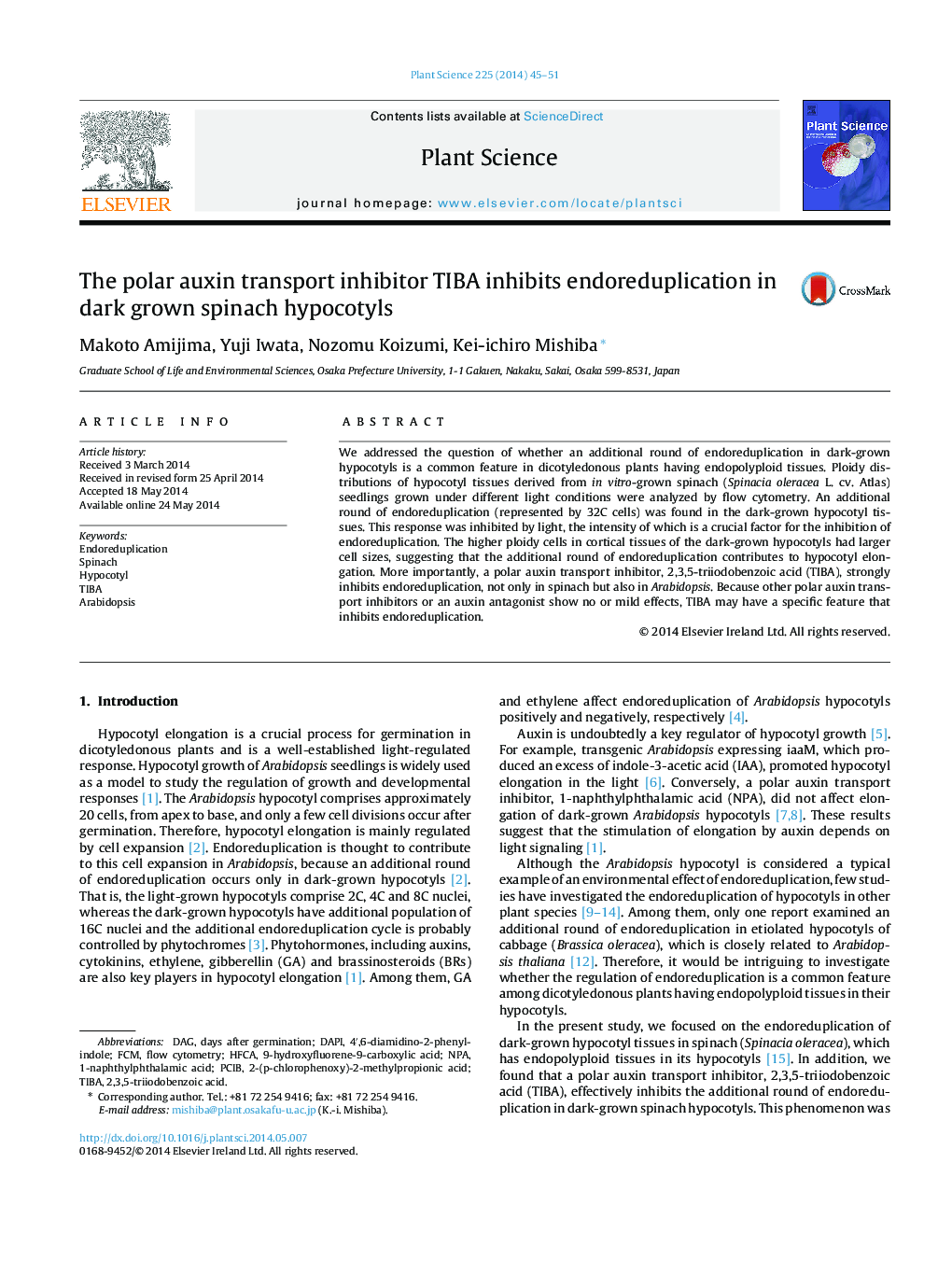| Article ID | Journal | Published Year | Pages | File Type |
|---|---|---|---|---|
| 8358246 | Plant Science | 2014 | 7 Pages |
Abstract
We addressed the question of whether an additional round of endoreduplication in dark-grown hypocotyls is a common feature in dicotyledonous plants having endopolyploid tissues. Ploidy distributions of hypocotyl tissues derived from in vitro-grown spinach (Spinacia oleracea L. cv. Atlas) seedlings grown under different light conditions were analyzed by flow cytometry. An additional round of endoreduplication (represented by 32C cells) was found in the dark-grown hypocotyl tissues. This response was inhibited by light, the intensity of which is a crucial factor for the inhibition of endoreduplication. The higher ploidy cells in cortical tissues of the dark-grown hypocotyls had larger cell sizes, suggesting that the additional round of endoreduplication contributes to hypocotyl elongation. More importantly, a polar auxin transport inhibitor, 2,3,5-triiodobenzoic acid (TIBA), strongly inhibits endoreduplication, not only in spinach but also in Arabidopsis. Because other polar auxin transport inhibitors or an auxin antagonist show no or mild effects, TIBA may have a specific feature that inhibits endoreduplication.
Related Topics
Life Sciences
Agricultural and Biological Sciences
Plant Science
Authors
Makoto Amijima, Yuji Iwata, Nozomu Koizumi, Kei-ichiro Mishiba,
